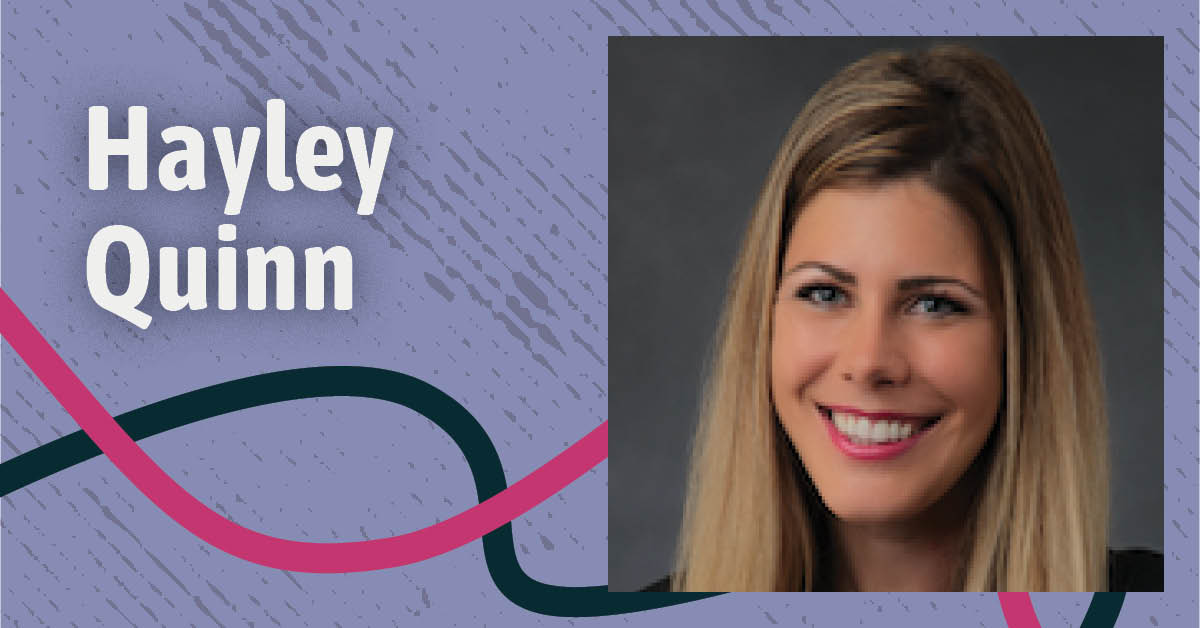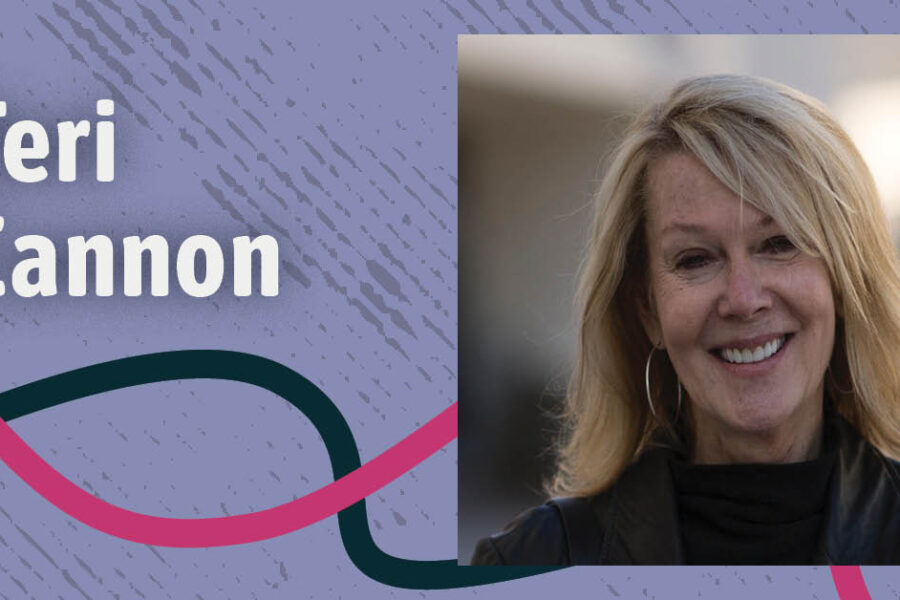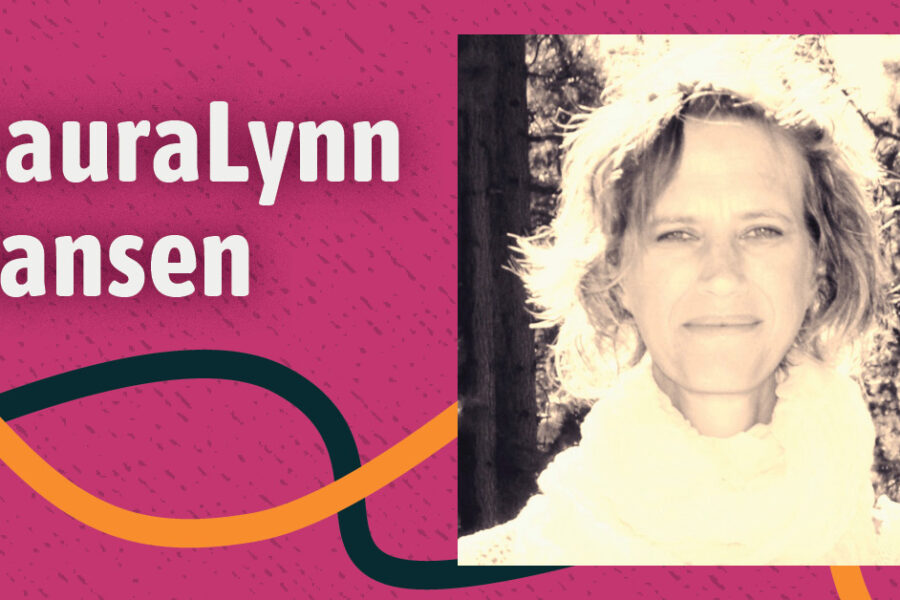As the digital continues to take over corners of our lives we never imagined would include screen time—think QR code restaurant menus and virtual exercise classes—these changes can feel overwhelming. But there are upsides to this phenomenon, like finding novel solutions to longstanding problems in behavioral healthcare. Hayley Quinn, a 2015 graduate of Antioch Seattle’s PsyD in Clinical Psychology program, is working just such a space, pioneering tech-enabled behavioral health solutions to scheduling, funding, and access.
Quinn is a Manager of Clinical Program Development at AbleTo, a tech-enabled provider of high-quality virtual healthcare that connects patients with licensed cognitive-behavioral therapists, motivational and behavioral coaching, and digital emotional health programs. This is an exciting career for Quinn, who has always sought out roles in the helping professions. In her role at AbleTo, she feels grateful and excited to be on the cutting edge of innovations in the field of psychology.
The Diverse Applications of Psychology (and Performing Arts)
Throughout high school and college, Quinn was a lifeguard. This led to her training as an EMT and finding a job in the emergency department of a large hospital. All of these experiences led her to pursue psychology as a career.
She chose to attend the PsyD program at Antioch Seattle. She chose Antioch in part because of the program’s emphasis on questions of access and social justice. But she also appreciated the opportunity to be exposed to lots of different specialties and career opportunities. “Antioch’s PsyD program also stretches us to explore many different types of clinical experiences,” she says, “which was helpful when I started on my career path. Having a variety of experiences allowed me to have a better understanding of my interests, as well as helping me be more competitive when looking at training or career opportunities.”
This advantage became a reality when she entered the job market. Quinn explains, “As an early career psychologist, I worked in integrated primary care. My background medical knowledge helped me develop solid intervention skills for medical populations, as well as understanding the medical landscape and culture of health systems.”
Designing Innovative Care Methods
With the varied experiences Quinn has had in the medical world—along with her background in dance and theater—it’s no surprise that her current position involves communications across many industries. At the end of last year, she joined the virtual behavioral health company AbleTo, which provides both software and a network of therapists and psychologists to people needing care.
Quinn works on a team responsible for the clinical content provided by AbleTo’s products and services. Her responsibilities include cross-functional collaboration with product and design teams, as well as other business stakeholders such as enterprise growth/sales, marketing, and legal departments. She also works closely with the clinical research team on measuring successes and outcomes. And she works with clinical operations for implementation and training needs.
On any given day you might find her in a design session building screens for AbleTo’s app, reviewing literature and doing research to inform or revise programming, interviewing users of AbleTo’s products for continuous improvement, collaborating with the research team on measuring clinical outcomes, or creating workflows for therapists and coaches to support new products. Her performing arts experience comes in handy in terms of engaging her audience when presenting on wellness topics for clients, which she does often.
Advocating for Psychology Across Industries
The skills that come with training in psychology and mental health have far-reaching applications both within healthcare and to other fields. With an increase in mental health issues—for instance, isolation, grief, trauma-induced anxiety, and depression—the need for mental health resources in schools, workplaces, and, well, everywhere, is becoming increasingly apparent. This is, if anything, made even more pressing by the pandemic, ever-escalating gun violence, and persistent racial injustice. Psychology has an important role to play in informing various industries through a human-centered and behaviorally focused lens.
Quinn hopes to play a key part in advocating for the diversification and application of the field of psychology across all areas of industry. Her professional goals include increasing behavioral health access through leveraging technology and reducing the stigma around mental healthcare by incorporating behavioral health conversations into all areas of society through technology platforms. She plans to continue advocating for the field of psychology across a variety of fields.
In part, Quinn credits her time at Antioch for her perspective, where she sees the diverse uses and applications of psychology. She says that “Antioch’s focus on social justice and advocating for underserved populations is an important value that influences my work today.”
While she misses providing direct clinical care, Quinn feels that in her current position—where her decisions can affect thousands of patients—she has the potential to create real change. She loves working with so many different types of professionals, like engineers, sales teams, and product managers. Perhaps the most rewarding part of the job is that she’s able to track clinical improvements through AbleTo’s research and participant feedback. Even in her more abstract role in content development, this lets her keep that human connection to experience patients receiving much-needed help. Because that’s Quinn’s ultimate desire: to leverage new technology to bring the benefits of psychology to everyone with need.




